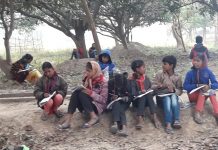Writing History for Young Minds
A well-known historian and writer Roshen Dalal was born in Mussoorie, India. She did her PhD in ancient Indian History from Jawaharlal Nehru University, New Delhi. She has taught at both school and university, and has been involved in research in the fields of history, religion, philosophy and education. We had the opportunity of interacting with her and asking her some thought provoking questions. Here is an excerpt from this conversation.
You would perhaps agree that a lot of young minds grow up associating history with dry memorization of facts and dates in the absence of teachers who inspire, how do you think this effects the young minds of learners? What for you would compose a creative pedagogy in terms of disseminating history in the classroom?
It is true that unfortunately, history is often associated with memorizing facts and dates. A lot can be done to change this, but only if there is some flexibility in the syllabus. I have written some articles for Teacher Plus, where I have suggested integrating different subjects around a theme. One of my suggestions was to take up Alexander, and follow his conquests; looking at the places he visited, their landscape and history, Greek philosophy, music, and everything else, including relationships. In addition one can raise questions about why we consider a conqueror important. What was his personal life? This brings us to questions of what history is, and the choice of facts in history. Recently the Finland educational system is trying something similar, and not focusing on a single subject. But for any innovative type of teaching, one has to start with an excellent teacher. The usual BA/Bsc followed by a Bed is not in itself sufficient. The teacher must be widely read. and must always continue learning and reading.
The Indian educationist and thinker Sri Aurobindo says that the child must be taught about the world from near to far, however contemporary practices in education often tend to deny the knowledge already available to the child and rather lay emphasis on abstracted knowledge which is divorced from the life of the child. Do you think History as a discipline can alter its alienating character and come closer to the realities of the child?
It is a good idea to start of with something a child knows about. In fact, while explaining that history can be the history of anyone and anything, a youngster could begin by research on the history of his/her own family. Another useful exercise is to get them to write a history of their own class in the previous month. This would indicate how they have to choose and select facts even for such a short period and such a small topic, and what their bias could be. Would bright students write about how they got the highest marks in a test? Would others not write about tests at all?
Your books are fascinating and inculcate the child’s interest in the discipline, what has inspired you to contribute so beautifully to the domain of writing for children? How would you differentiate between writing for children and writing for adults?
My books for children are the result of the few years during which I was a teacher at Rishi Valley School. At this time I gained an understanding of what could interest youngsters, and the type of books they would prefer to read. I found that there were no history books that class 7 or 8 students wanted to read, neither texts nor reference material. The first book I wrote, now called the Puffin History of India, was written keeping them in mind. In addition my fascination with history allows me to constantly expand my own learning.
In writing for young people, I don’t include too much analysis or negative comments on anyone or anything. Thus it is somewhat different from writing for adults. Of course I have described terrible incidents, for instance Partition, but I have tried not to blame anyone for what happened, to look on it as an ‘accident of history’.
The contemporary world is conflict ridden and war prone, how do you think history classes within schools can create newer sensibilities among students for peace and cooperation?Where do you think lies the pedagogue’s role in transforming the mind of the learner?
The teacher should try to be objective, and should have a very wide knowledge. For instance, when talking about war, one has to try to bring out the fact that common people and even soldiers do not have animosity towards one another. One has to try and show how everyone is basically the same, and how differences created by country, caste, class, religion are superficial. And to do this successfully, one requires teachers who believe this. Another focus can be on the many organizations for peace and cooperation in the world, which indicate how everyone really wants peace. One should also be able to discuss differences, and to learn from them, rather than be alienated by them.
Tell us a about your life trajectory and educational process and how it has inspired you to dedicate yourself to writing for children.
I grew up in a family where everyone was very well read and where the house was always overflowing with books. It was a liberal family, with no strong identities, and where no one differentiated with anyone else on the basis of caste, religion, or nationality. At the same time it was also largely apolitical. These values remained with me throughout my life, and are reflected in my writing.
My interest in history began in Intermediate Arts in Bombay University, where I became fascinated by Ancient Egypt. I decided to study history further, and after a BA in History, was fortunate to be able to specialize in Ancient Indian History at JNU, New Delhi, from where I completed an MA and PhD. Along with history I was always interested in religion and philosophy. I went to Rishi Valley School because of an interest in the philosophy of J Krishnamurti, and as I said was inspired by the young students there to start writing history. After the success of the first book, my editors at Penguin, encouraged me to write more books. I have five books for youngsters on history, and three for adults on religion/philosophy. Currently I am working on three more books.
We thank you so much for taking out the time to share these insights with us. We wish you many more years of writing.
This article is published in The New Leam, FEBRUARY 2017 Issue( Vol .3 No.20) and available in print version. To buy contact us or write at thenewleam@gmail.com
The New Leam has no external source of funding. For retaining its uniqueness, its high quality, its distinctive philosophy we wish to reduce the degree of dependence on corporate funding. We believe that if individuals like you come forward and SUPPORT THIS ENDEAVOR can make the magazine self-reliant in a very innovative way.














